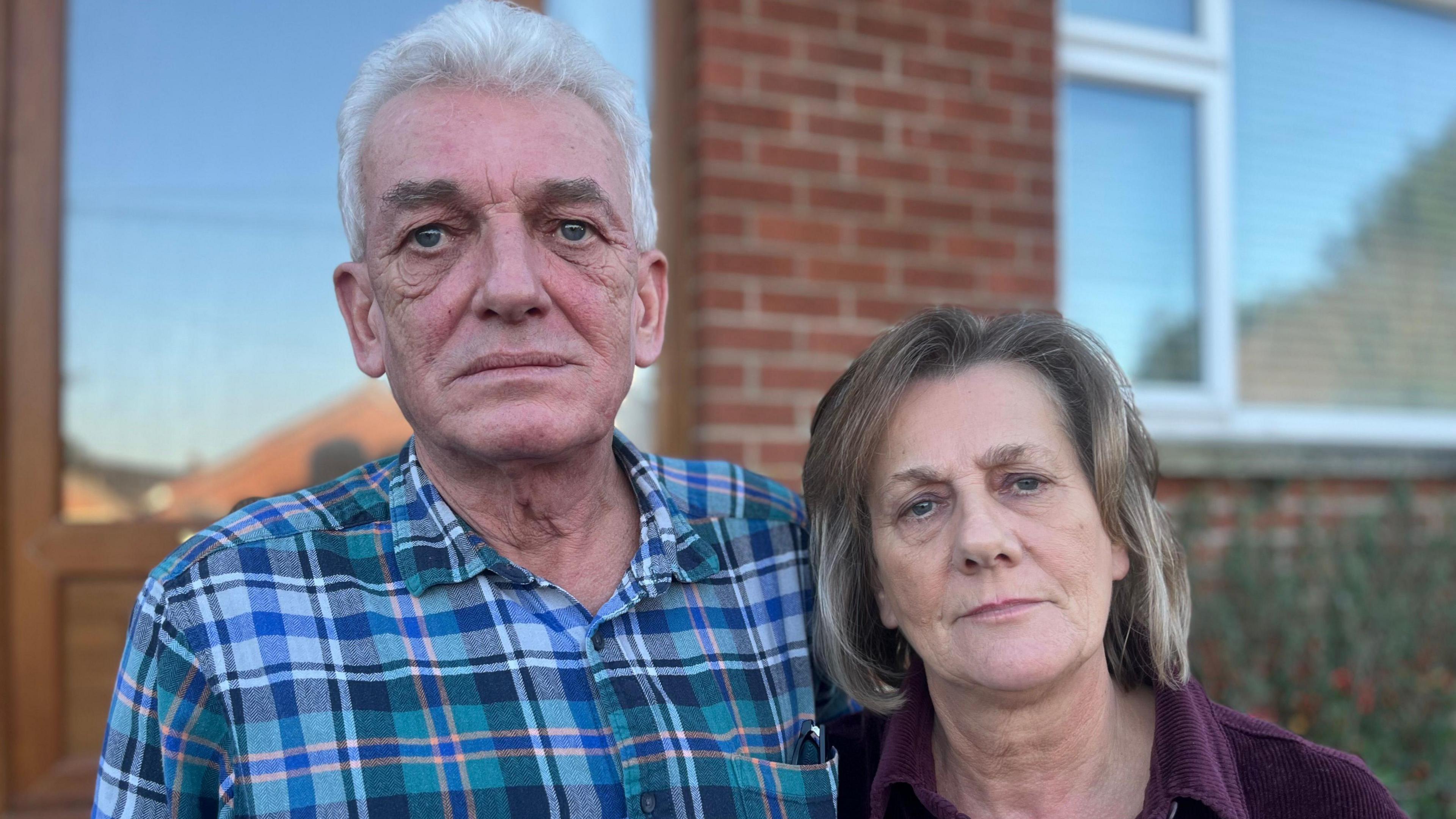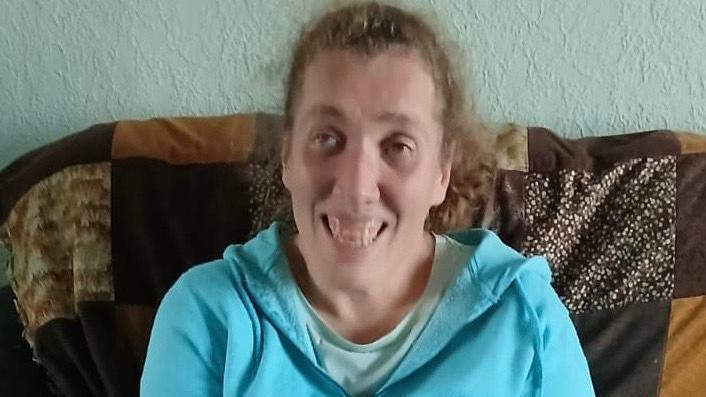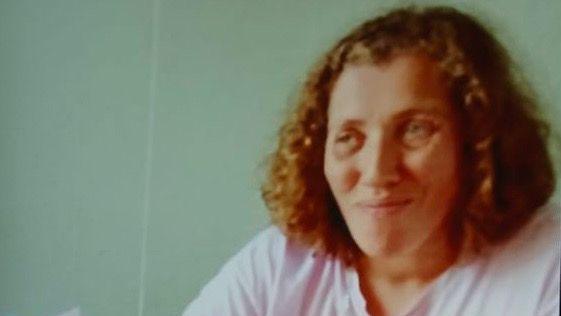Watchdog's 'serious concerns' at supported living facility

Mark and Marjorie Sharp said Cedar had threatened to evict their daughter after they made multiple complaints regarding her care
- Published
"Serious concerns" have been identified by Northern Ireland's health watchdog regarding the delivery of care at a supported living facility in west Belfast.
The same facility – The Mews - was previously criticised by the parents of one of its service users in an interview with BBC News NI.
The Cedar Foundation, which runs the service, said it acknowledged there were "areas" where compliance had not been "fully met".
It comes after the Regulation and Quality Improvement Authority (RQIA) found a series of failings which, it said, compromised service users' quality of life.
Cedar said it was now working to implement a "comprehensive action plan" to address the issues identified.
However, it also argued that the standards applied by the RQIA in regulating supported living services were outdated and not necessarily relevant to people with complex needs.
Earlier this year, Mark and Marjorie Sharp said Cedar had threatened to evict their daughter after they made multiple complaints regarding her care.
Laura, 39, has a severe learning disability and has been living at The Mews for seven years.
Mr and Mrs Sharp have now welcomed the RQIA's decision to take enforcement action against the facility.

Laura Sharp had been living at The Mews for seven years
RQIA 'failure-to-comply' notices
The RQIA carried out an unannounced inspection at The Mews over the course of three days in February and March.
It said this was in response to receiving information at the start of February.
It concluded that the service was "failing to consistently and meaningfully implement a supported living model of care" that focuses on promoting service users' "independence" and "choice", and the "delivery of person-centred care".
It said these "deficits" undermined the core principles of supported living and therefore "compromise service users' quality of life".
The watchdog issued the facility with two "failure-to-comply" notices - giving it until June to ensure its concerns have been addressed.
It is also seeking to impose a condition on The Mews that would prevent it from admitting any new service users without prior agreement.
Mr and Mrs Sharp said they recognised some of the failings identified by the RQIA in their daughter's care.
They said Laura had "no quality of life" at The Mews and they believed she had been "neglected".
They said she was "more like a detained patient" than someone being supported to live as independently as possible.
'Not fit for purpose'
In a statement to BBC News NI, Cedar said "many" of those within its supported living service had "positive experiences", but added there were "instances where individual needs may go beyond the scope of supported living".
Among the RQIA's findings were a "limited structure" to service users' daily routines, as well as staff not having the required knowledge or skills to effectively manage or avert behavioural incidents, resulting in service users being "contained in a restrictive environment".
It described as "concerning" the use of "restrictive practices", including the locking of some service users' doors and limiting their ability to access the garden and beyond.
The watchdog identified an "inflexible and indiscriminate" approach to the use of key fobs to control access to internal doors and gates, regardless of whether service users had capacity.
It said it was not assured that such practices promoted the "rights, dignity and choice" of those living at the facility.
Cedar told BBC News NI that the restrictive practices identified by the RQIA were in place specifically to keep some service users safe depending on the complexity of their needs and that they were formally assessed by the Belfast Health and Social Care Trust, which commissions the service.

Mrs Sharp said she believed the system had "let Laura down".
Following the RQIA's findings, Mr Sharp said the facility was "not fit for purpose".
Mrs Sharp said her daughter was "suffering" in the facility – that her wellbeing had declined sharply over the past year to the point where she now sleeps during much of the day.
"When she first went in she was out every day either going shopping, or going for a walk, going for a coffee," she said.
"Laura has no quality of life. She's like a detained patient – or a detained resident in supported living. Laura has nothing to look forward to. She has no structure."
Mrs Sharp added that she believed the system had "let Laura down".
What has been the response?
Cedar Foundation said it remained committed to doing its best "to ensure that disabled people get the support most appropriate to their needs".
The Belfast Trust, which commissioned Cedar to provide Laura's care, said it was "very sorry" that the current situation concerning Laura's placement was "causing considerable stress and anxiety to her and her family".
"Laura's wellbeing is of vital importance to us and we will continue to work with her family regarding the next steps in finding the best outcome for her," it said.
The trust added that it was working with Cedar on an agreed action plan to address the RQIA's concerns.
Earlier this year, Cedar gave Mr and Mrs Sharp notice of what they described as their daughter's eviction.
The main reason for its decision, it said in a letter to the couple, was that it was "unable to provide the care and support that Laura needs".
It added that relationships had "broken down" between Mr and Mrs Sharp and Cedar staff, citing "ongoing incidents of verbal aggression, disparaging comments, and intimidation" by Mr and Mrs Sharp towards staff.
Mr and Mrs Sharp told BBC News NI they had never been abusive and had only ever acted in the best interests of their daughter.
Related topics
- Published7 March
